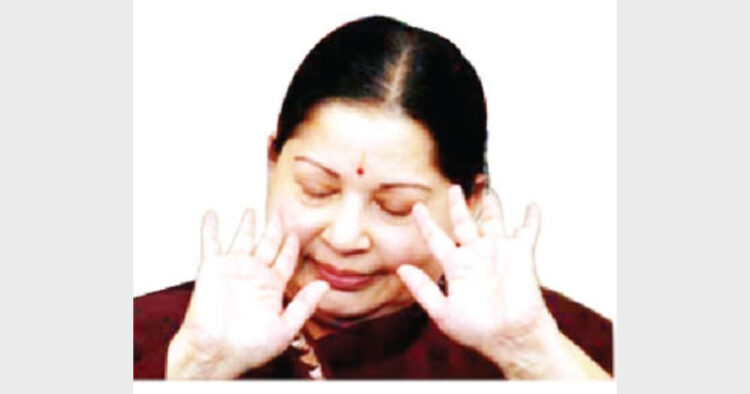The Moving Finger Writes: The Cultural Heritage of Tamil Nadu
Intro:There is no such thing as a ‘pure’ one language.
The intellectual scenario in India is becoming more and more ridiculous. Think of the furore raised over the Vaidik-Saeed interview. Now it is over a simple suggestion made by the Union Ministry of Human Rights Development to all States asking them to celebrate a ‘Sanskrit Week’ from August 7 to 13. Tamil Nadu’s Chief Minister J Jayalalithaa has reacted strongly to the HRD Ministry’s request with an alternate suggestion. As she put it: “Any official celebration of ‘Sanskrit Week’ in Tamil Nadu is highly inappropriate. It would have been more appropriate to have a Classical Language Week in each State based on the linguistic heritage of that State.” As she explained: “This would be in keeping with the cultural and linguistic sensibilities in a diverse country like ours.” Her argument was that Tamil Nadu has a rich cultural heritage based on the ancient Tamil language and with the State presently undergoing strong social justice and language movement, it would be inviting trouble to observe a Sanskrit Week. In other words, Tamil Nadu would not be wishing to celebrate a Sanskrit Week Period. Doing so, one suspects, is like resuscitating an Aryan/Dravidian conflict, however inept it may sound. One has to be sensitive to Tamil feelings.
As for Tamil as a language, there cannot be two opinions about its status as a classic language. Its literature has a long history, which is seldom appreciated in the North. That history spans more than two thousand years.
According to linguistic experts, the oldest works in Tamil show signs of maturity indicating an even longer period of evolution. The early Sangam literature, starting from the period of the 2nd century BC contain anthologies of various poets dealing with many aspects of life, including love, war, social values and religion. This, as is well-known, was followed by the early epics and moral literature lasting up to the 5th century AD. It is during this era that some of the grandest of Tamil literary classics like Kamba Ramayanam and Periya Puranam were authored and many poets were patronised by the Imperial Chola and Pandya empires. According to Wikipedia, “by having the most ancient non-Sanskritised Indian literature, Tamil literature is unique and thus has become the subject of study by scholars who wish to delineate the non-Aryan and Pre-Aryan strands in Indian culture.” It is an accepted fact that Sangam literature comprises some of the oldest extant Tamil literature, but, it is claimed, much of it has been lost.
Tamil Nadu has a long history easily comparable to Sanskrit. Comparisons are odious and each language has its own status. Sanskrit reverberates throughout the length and breadth of India and languages like Hindi, Marathi, Gujarati and Bengali owe much to it. However if the Central Board of Secondary Education hopes that by celebrating Sanskrit Week, it will ‘revitalise’ the use of simple Sanskrit among the youth,” it is not committing any grievous error. It is said that three centuries after, the Sangam age witnessed an increase in the mutual interaction of Sanskrit and Tamil.
As Wikipedia puts it: “A number of words and concepts relating to ethics, philosophy and religion were mutually borrowed and exchanged between the two languages.” That was but inevitable. English, for instance, has accepted several words from Indian languages and no one objects to it. There is no such thing as a ‘pure’ language. But, as in the case of Hindi, the Union Government would be wise not to enforce Tamil Nadu to observe Sanskrit Week. Each State could be given an option. One can be sure that there are many Tamil scholars who are proud of their Sanskrit heritage, but one does not have to use that to introduce a schism in Tamil society. Let Jayalalithaa order the observance of a Tamil Week in Tamil Nadu. Would she attempt to eliminate or erase non-Tamil words that have inevitably crept into Tamil as indeed they have in other languages? Well, she might try. One can only wish her good luck.
(The writer is a senior journalist and former editor of Illustrated Weekly)














Comments